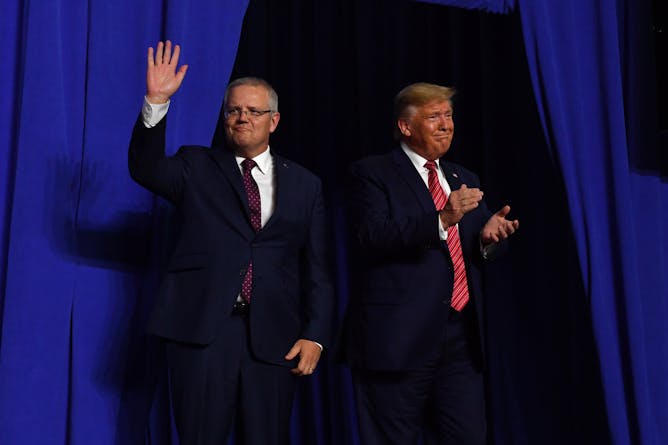|
|
|
Editor's note
|
|
A few years ago my beloved aunty (she was the best, she wore pink leopard-print everything) was diagnosed with breast cancer. At first it looked good and then it didn’t look so good. She tried everything - from Western medicine to dietary changes to some of the more alternative methods. And of course, everyone had their own advice - miracle cures they were sure had worked for so-and-so’s friend who lived around the corner. The most common form of advice I heard though, was for her to “stay positive”. People assured her if she stayed positive she could “beat it”.
I have to admit this annoyed me a bit. How could cancer cells be influenced by positive thinking? And what about the added burden on my aunty - not only did she have to suffer through chemotherapy and a mastectomy, she had to be happy about it?
I wanted to find out if thinking positively could affect how well we recover from illness and disease, so I set about asking some experts in the field. I spoke to a specialist in pain, psychiatry, mental health, a GP, and someone who conducts research on stress and cancer. Surprisingly, all five said our mental state has been found to affect our recovery from various illnesses, and how likely we are to be ill in the first place.
But importantly (for me), expert Sarah Mansfield pointed out studies looking specifically at cancer didn’t find positive thinking had an effect on the disease’s progression or how likely you are to die. And she added the social pressure to stay positive can take a toll, and it’s important to remember grief is normal, and to be expected.
|
Alexandra Hansen
Chief of Staff
|

|
|
Top story
|

A positive mindset can affect some aspects of disease, but grief is normal and to be expected.
from www.shutterstock.com
Alexandra Hansen, The Conversation
We asked five experts if your mental state can affect how well you recover from illness and disease. Five out of five said yes.
|

“I think Australia has absolutely nothing to hide but cooperation will bring a cost”, says Michelle Grattan on the government cooperating with the inquiry into the Mueller inquiry.
Mick Tsikas/AAP
Michelle Grattan, University of Canberra
Deep Saini and Michelle Grattan discuss the consequences of the controversial phone call between Morrison and Trump as revealed by the New York Times.
|
Science + Technology
|
-
Adele Pentland, Swinburne University of Technology
A 'game-changing' fossil pterosaur suggests these species could easily fly between continents, helping to explain why similar specimens have been found all over the world.
-
Kathryn Ringland, Northwestern University
The Autcraft community offers a controlled and filtered environment for autistic children to play and socialise
|
|
Arts + Culture
|
-
Ella Donald, The University of Queensland
Simone Biles enters the 2019 World Gymnastics Championships already with the most all-around gold medals ever. The greatest of all time, she has changed the sport forever.
-
Dan Golding, Swinburne University of Technology
Creators of video game sound scores have more in common with classical composers than you might think - and they create dynamic sounds and music that cleverly respond to play.
|
|
Health + Medicine
|
-
Stephen Bright, Edith Cowan University
Addiction has multiple causes and just chalking it up to someone's personality probably isn't very helpful in dealing with it.
-
Julie Green, Murdoch Children's Research Institute; Jon Quach, University of Melbourne
Daylight saving time starts this weekend, and it can often be the beginning of new dramas getting kids to bed. Here's how to make the transition a little smoother.
|
|
Politics + Society
|
-
Dennis Altman, La Trobe University
As the impeachment inquiry gathers pace, both sides seem to be digging in. What happens in the inquiry in the next few months will have a huge impact on the 2020 presidential election.
-
Greg Barton, Deakin University
To understand the threat better, we need to devote more resources to monitoring and tracking far-right forums and social networks and a national database tracking hate crimes.
|
|
Environment + Energy
|
-
Ted Lefroy, University of Tasmania; David Bowman, University of Tasmania; Grant Williamson, University of Tasmania; Penelope Jones, University of Tasmania
History has told us Aboriginal people in Tasmania almost exclusively occupied open plains. Revelations to the contrary could transform modern conservation.
-
Georgia Rose Grant, GNS Science; Timothy Naish, Victoria University of Wellington
New research shows that warming by more than 2°C could be a tipping point for Antarctica's ice sheets, resulting in widespread meltdown and changes to the world's shorelines for centuries to come.
|
|
Business + Economy
|
-
Peter Martin, Crawford School of Public Policy, Australian National University
One of the questions is how much we need in retirement. Another is whether we need 12% compulsory super to get there.
-
Lin Crase, University of South Australia
The government's Future Drought Fund flies in the face of years of work classifying drought as to be expected rather than a disaster.
|
|
Cities
|
-
David Kelly, Deakin University; Richard Tucker, Deakin University
It doesn't take much to start making it easier for people with a disability to get around a city.
-
Elisa Palazzo, UNSW
A call to make our cities more resilient to climate change could drive one of the largest new infrastructure builds in history.
|
|
Education
|
-
Alan Reid, University of South Australia
Many rely on David Gonski's ideas to shape the future of education policy. But his recommendation of personalised learning is a scripted, rigid version of education that will take us backwards.
-
Lisa Bero, University of Sydney
Most medical research is funded by industry, not public sources. And industry puts pressure on researchers in many ways, from guiding the research question to suppressing unfavourable findings.
|
|
| |
Featured jobs
|

|
University of Melbourne — Parkville, Victoria
|

|
RMIT University — Bundoora, Victoria
|

|
James Cook University — Townsville, Queensland
|

|
Deakin University — Waurn Ponds, Victoria
|
|
|
|
Featured events
|

|
NAB -The Hall, 700 Bourke Street, Docklands, Victoria, 3008, Australia — Monash University
|

|
State Library Victoria, Village Roadshow Theatrette, Entry 3, 179 La Trobe Street, Melbourne, Victoria, 3000, Australia — La Trobe University
|

|
Monash Conference Centre, 30 Collins Street, Melbourne, Victoria, 3000, Australia — Monash University
|

|
SSB Lecture Theatre 200, Social Sciences Building, Science Road, University of Sydney, Camperdown, New South Wales, 2006, Australia — University of Sydney
|
|
|
|
| |
| |
| |
| |
| |
|
|
|
|
|
|
|